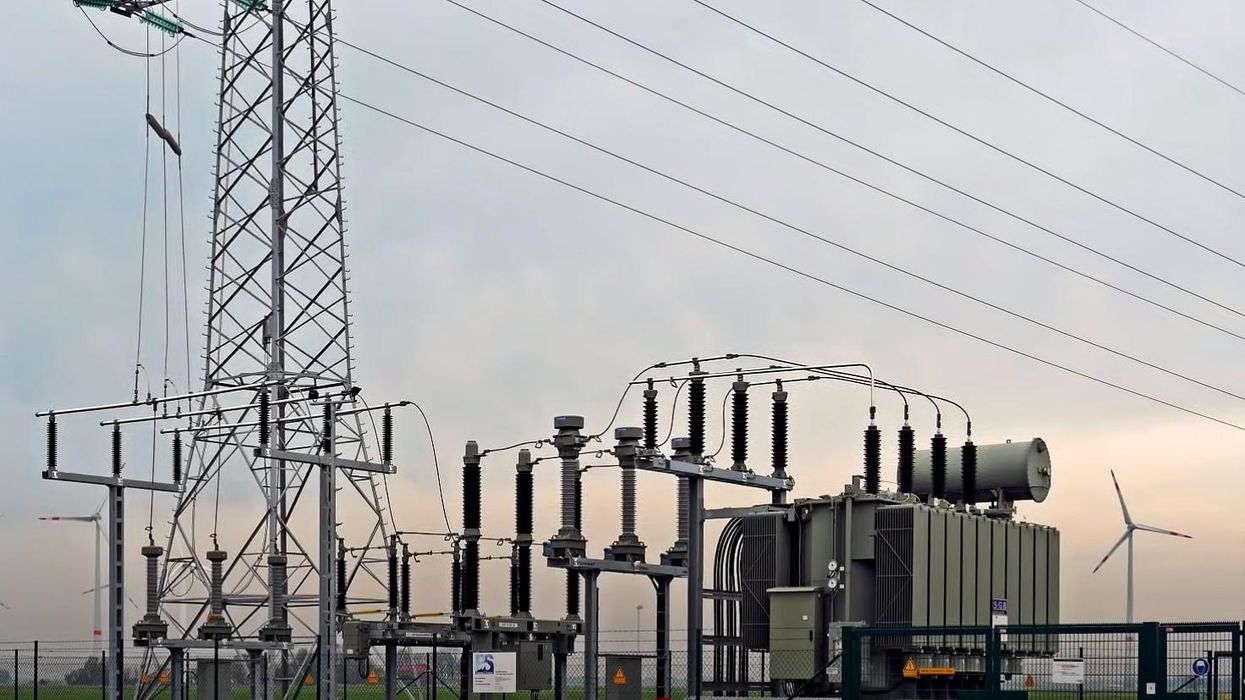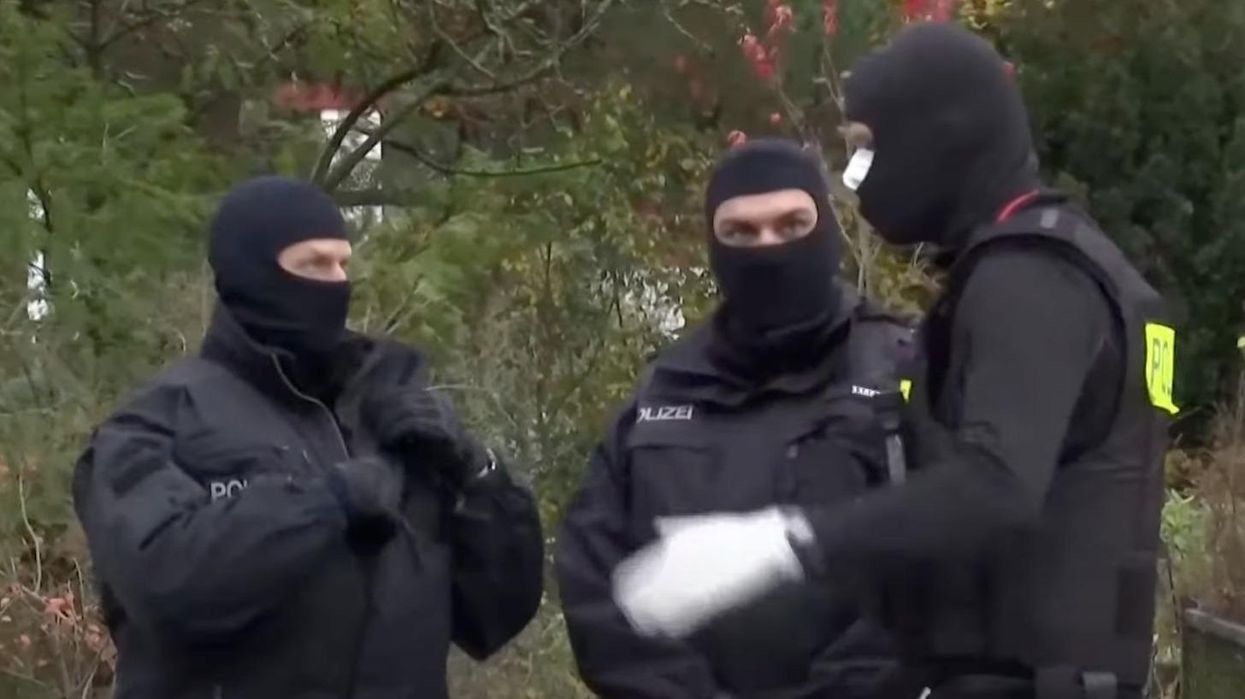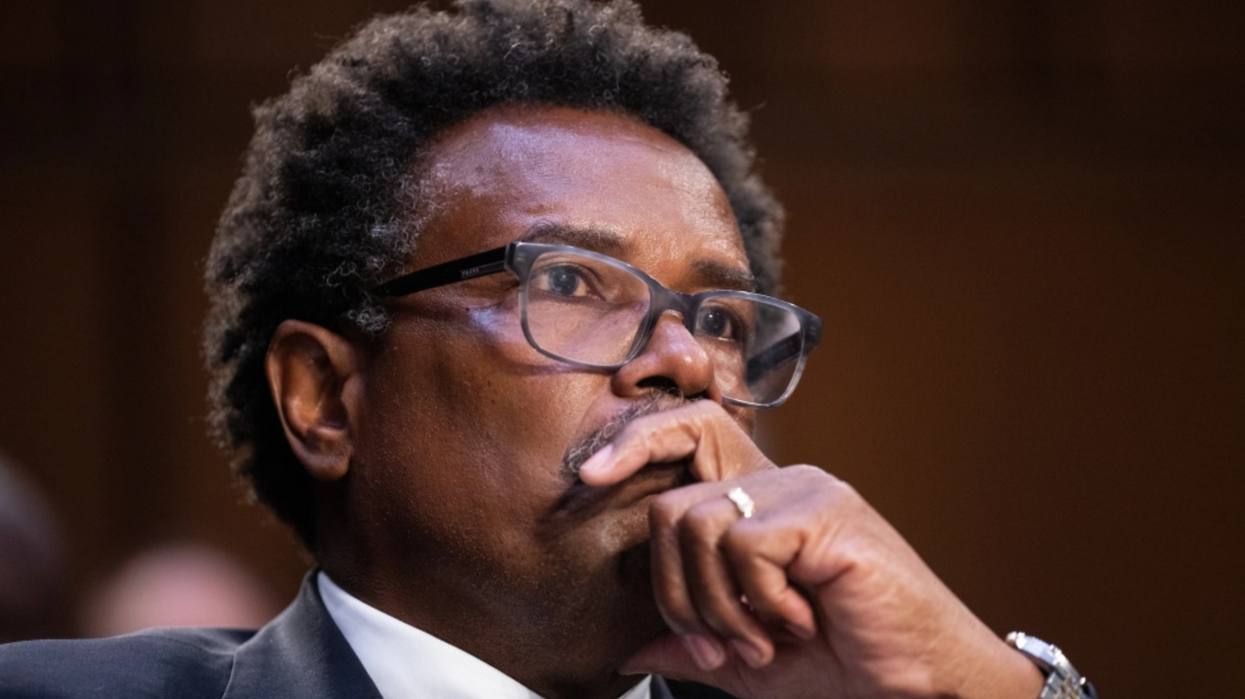Extreme Right Terrorists Appear To Be Targeting Power Substations
The 40,000-plus North Carolinians who have been without power since Saturday because someone knocked out the power grid in Moore County have largely been restored to service now, thanks to workers at Duke Energy who scrambled to replace the equipment destroyed in what has all the earmarks of a domestic terrorist attack. The investigation into the attacks continues apace, with the FBI issuing search warrants both for individuals and for cell phone data.
But in the wake of the attacks, a larger national picture, much more disturbing in its implications, has emerged—one in which it’s now clear that Moore County was not an isolated incident. Utilities around the nation, ranging from the Pacific Northwest to Florida, are reporting a recent uptick in similar gunfire attacks on power substations—all of them in many ways embodying the spread of online extremist content promoting such terrorist attacks and explaining how to carry them out.
Back in January, the Department of Homeland Security (DHS) warned that American extremists have begun exhibiting an unhealthy interest in attacking the power grid—at first regionally, then nationally—as a means of disrupting the country. Far-right domestic extremists “have developed credible, specific plans to attack electricity infrastructure since at least 2020, identifying the electric grid as a particularly attractive target given its interdependency with other infrastructure sectors,” according to the DHS report.
There were indications that such an agenda may have been behind a series of incidents last month in Washington and Oregon, when at least six different attacks on power substations were reported to the FBI. Two unidentified substations operated by Puget Sound Energy, as well as two others operated by Cowlitz County Public Utility District in the Woodland area of southwestern Washington, were subjected to “vandalism,” the latter causing a brief power outage in the area. The attackers cut open a fence and then shot up transformers, apparently targeting specific pieces of equipment.
Another significant attack was reported by the Bonneville Power Administration (BPA) against one of its substations in Clackamas County, Oregon, which it described as a “deliberate physical attack” early on Thanksgiving morning. Oregon Public Broadcasting and KUOW report that a BPA security specialist described the attack in an email: “Two people cut through the fence surrounding a high-voltage substation, then ‘used firearms to shoot up and disable numerous pieces of equipment and cause significant damage.’”
Four days later in Clackamas County, there was another attack, this time on a Portland General Electric substation, though details of the attack were unavailable. (Most of the utilities, understandably, were tight-lipped about the incidents.) However, records indicate the attack managed to disrupt electricity in at least some areas of Clackamas County: The county’s computer systems were knocked offline.
The BPA specialist’s memo also referenced “several attacks on various substations,” recently in Western Washington, “including setting the control houses on fire, forced entry and sabotage of intricate electrical control systems, causing short circuits by tossing chains across the overhead buswork, and ballistic attack with small caliber firearms.”
Meanwhile, across the country in Florida, reporters found that there have been at least half a dozen “substation intrusion events” in recent months, though none of these involved vandalism by gunfire. Rather, these intrusions involved people who manually turned off the power substations by tripping switches. Most of these incidents resulted in brief outages that were quickly restored.
NewsNation obtained a memo indicating federal law enforcement suspects the people behind the Florida intrusions possess inside knowledge about how the grid operates, and are familiar with powering down equipment without causing damage.
“The fact that someone has potentially identified a critical substation and then has knowledge of those critical pieces of equipment inside that substation leads me to believe that they’re dealing with people who have inside knowledge,” the memo read.
While some of these incidents may turn out to have non-political (and thus non-terroristic) motivations, the DHS’s January memo warning of attacks like these as likely terrorism events was well-grounded. It indicated that conversations among far-right extremists online have increasingly focused on encouraging so-called “lone wolf” attacks involving only a single terrorist. Other online chatter includes efforts to inspire people with minimal training to also target electrical infrastructure, with weapons ranging from improvised incendiary devices, hammers, power saws, and guns.
Electrical infrastructure has become a key target for the most recent iterations of accelerationist neofascist groups like The Base and Atomwaffen SS. One such terrorist cell that targeted the January 2020 pro-gun protests in Richmond, Virginia, discussed targeting the power grid and cell towers in the area to debilitate any police response while disguised as both left-wing activists and as “3 Percent” militiamen, believing it would direct violence towards the groups blamed for the destruction.
A group of Marines who moved to Idaho from North Carolina tried to set up a terror cell that would conduct assassinations and other criminal acts targeting “leftists” and the government, using attacks on the Pacific Northwest power grid as their primary tool. In a propaganda video, the members of the neo-Nazi organization, which called itself “BSN,” could be seen practicing with firearms in the vicinity of high-power transmission lines.
The outages in North Carolina were widely celebrated by right-wing extremists, who drew a connection between the attacks and the drag-queen performance held that evening in Southern Pines. One neo-Nazi Telegram post laden with slurs against the LGBTQ community celebrated the "magnificent act of sabotage" as a "beautiful escalation" in a broader culture war.
SITE Intelligence Group, according to Newsweek, also identified a neo-Nazi publication warning that "these attacks will only continue" unless such drag shows cease altogether. At the far-right-friendly message board 4Chan, commenters described specific tactics that further harm the power grid. Others proposed focusing their attacks on taking down the electrical infrastructure in larger cities such as New York and Washington, D.C. since they "are not majority white."
Rita Katz, founder and executive director of the SITE Intelligence Group, told Newsweek that the Moore County attack is consistent with recent online neo-Nazi messaging.
"The sabotage against the North Carolina substation aligns perfectly with directives and methods seen in accelerationist neo-Nazi communities," Katz said. "If this was indeed a far-right terrorist attack, my worry is that it will serve as a proof of concept for other far-right extremists.”
Katz also says they see plans to do the same against power stations near prominent news and media companies they consider enemies. Targeting infrastructure, she explained, is "a key objective for accelerationist neo-Nazis, who care less about any distinct outcome and far more about sowing any kind of chaos."
A widely shared post published this summer by a neo-Nazi publication included "a detailed manual" that called power grids "the main satiating tool the system uses to keep the masses from rioting" and advised on ways to inflict maximum damage, including what to target when shooting at substations.
With such material readily available to wannabe saboteurs, Domestic Terrorism Threat Monitor (DTTM) director Simon Purdue told Newsweek that "the threat posed by attacks on critical infrastructure cannot be underestimated."
"The situation in Moore County offers only a glimpse into the chaos that attacks such as this can cause, and larger scale assaults could bring disruption on a statewide or even national level," Purdue said. He pointed to "a steady slew of manifestos, social media posts, videos and even instruction manuals on this kind of attack being produced by extremists over the past few years."
"The Moore County case was small-scale when compared to some of the plans that we have seen," he added, "and infrastructure needs to be better protected against such attacks."
Election season overtime is finally winding down, so Democratic operative Joe Sudbay joins David Nir on The Downballot as a guest-host this week to recap some of the last results that have just trickled in. At the top of the list is the race for Arizona attorney general, where Democrat Kris Mayes has a 510-vote lead with all ballots counted (a mandatory recount is unlikely to change the outcome). Also on the agenda is Arizona's successful Proposition 308, which will allow students to receive financial aid regardless of immigration status.
Over in California, Democrats just took control of the boards of supervisors in two huge counties, Riverside and Orange—in the case of the latter, for the first time since 1976. Joe and David also discuss which Democratic candidates who fell just short this year they'd like to see try again in 2024, and what the GOP's very skinny House majority means for Kevin McCarthy's prospects as speaker.
Reprinted with permission from Daily Kos.












